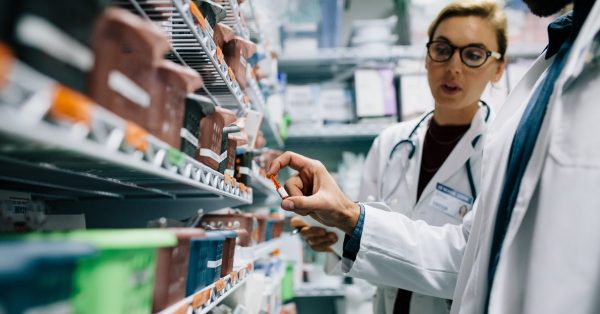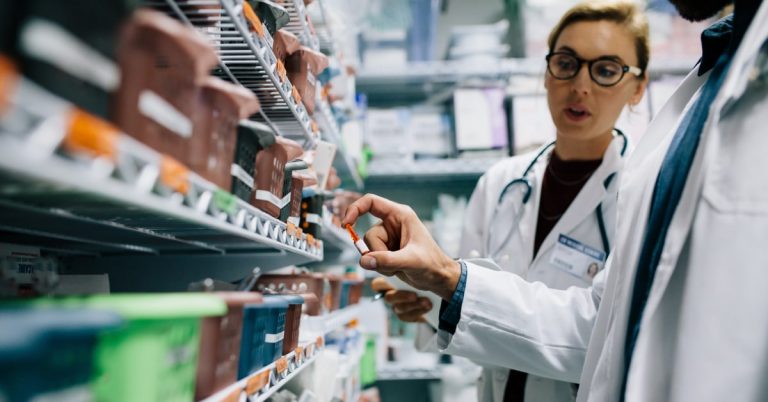Pharmacy rotations are divided into Introductory Pharmacy Practice Experiences (IPPEs) and Advanced Pharmacy Practice Experiences (APPEs). Students must complete and pass all rotational experiences prior to receiving their degree.
Pharmacy rotations are a significant part of your pharmacy education because they provide you with real-life practical experiences meant to bolster all the didactic training you receive. Your rotations are opportunities to acquire the hands-on experience you need to practice pharmacy competently and independently in a clinical setting. During your rotations, you will be actively providing care for patients under the supervision of a pharmacist preceptor, so the stakes are high. This article will give you some insight into preparing for your pharmacy rotations.
Introductory Pharmacy Practice Experiences (IPPEs)
Depending on your pharmacy school, IPPEs are completed sometime during your first year of pharmacy school through the second year (including during the summer). The ACPE Standards of Pharmacy Education (2016) require at least 300 hours of experience integrated into the didactic curriculum with at least 150 hours split between a community and health-system (i.e., hospital, rehab, infusion center) setting. IPPE rotations are meant to expose pharmacy students to “entry-level, patient-centered care in a variety of practice settings as contributing member(s) of an interprofessional team.” IPPE rotations set the foundation for further didactic learning and preparation prior to beginning APPE rotations.
Advanced Pharmacy Practice Experiences (APPEs)
APPEs are completed during the last year of pharmacy school training and are meant to “integrate, apply, reinforce, and advance the knowledge, skills, attitudes, abilities, and behaviors” learned throughout pharmacy school. Over the year, a minimum of 1440 hours of APPEs must be completed to meet graduation requirements. While there is room to explore a variety of rotations during this time, students must complete required APPEs in the four required practice settings (i.e., community pharmacy, ambulatory care, hospital/health system pharmacy, and inpatient general medicine patient care).
Now that we got that cleared up, you’re probably wondering what exactly goes into successfully passing these rotations? While each preceptor (and rotation) may have different sets of expectations, it’s important that you are ready to learn. Whether you are preparing for an IPPE or an APPE, you will want to know how to distinguish yourself as an outstanding pharmacy candidate. Review our advice below to help give you some insight in preparing for your pharmacy rotations.
1. Proper preparation is critical to your success.
As you approach your pharmacy rotations, make sure you are thoroughly prepared. Contact your preceptor about 2 weeks in advance to introduce yourself and ask for advice on what to expect. The more informed you are before your rotation begins, the better prepared you will be to succeed. Some of the details you might inquire about include:
- Expected hours of the rotation
- Patient populations you will be serving
- Guidelines to be familiar with
- Materials you should bring (e.g., laptop, tablet)
- Attire for the rotation (i.e., business professional, white coat, scrubs)
This email contact will serve as the first impression to your preceptor, so be sure to address your preceptor by the appropriate title and proofread everything. Ensure that your email sounds formal and professional and represents you in the best light.
2. Planning is key; make a calendar.
After you email your preceptor, they may provide you with a syllabus containing general expectations. Create a calendar to budget your time to complete assignments and projects by their due dates. Your pharmacy school may have additional specific tasks to be completed during certain rotations. It is important to identify these at the beginning of your rotation so that you can allot proper time to getting these experiences completed.
On your calendar, include any days off (e.g., Spring break, Fall break), scheduled weekly feedback, topic discussions, patient case presentations, project due dates, evaluation due dates, etc. This will help you stay on track while making the most out of the rotation.
3. Brush up on your drug knowledge.
Identify and review topics you may encounter on your upcoming rotation. Your preceptor may provide you with supplemental documents and primary literature to read before your first day. If your preceptor did not provide you with pre-rotation reading, you can prepare by reviewing guidelines, pharmacy school notes, or relevant chapters from the RxPrep Course Book (i.e., read the Infectious Diseases chapters before a rotation focused on infectious diseases).
4. Set goals for each rotation.
To make the most out of each rotation, talk to your preceptor and set achievable goals. Setting goals that go above and beyond your preceptor’s expectations will make you a standout student and demonstrate your skills. For example, you may have a goal to complete a medication use evaluation or research project to add to your curriculum vitae. Being a standout student will make it easier to obtain strong letters of recommendation for residency and job applications. With that being said, if you hope to ask a preceptor to write a letter of recommendation for you, be sure to let them know when you start the rotation.
5. Arrive on time and ready to go.
Make sure you are familiar with the logistics of your rotation, including location and start time. It is wise to commute to the site beforehand to familiarize yourself with your route and where to park, so there are no surprises on day one. Make sure you are punctual and show up prepared to put your best foot forward. Also, it’s critical to apply yourself to succeed; be an active listener, take notes, ask questions, and review everything you learn on-site on your own time.
6. Demonstrate professionalism at all times.
Your preceptor will expect you to be professional and reliable. Conduct yourself professionally at all times, including knowing how to receive and respond (not react) to constructive criticism. Your clinical rotations are your opportunity to step into the shoes of an actual practicing pharmacist, so rise to the occasion and meet the moment. To that end, be sure to leave each and every rotation on a good note. Pharmacy is a small world, and professional connections can help with future career endeavors.
Your pharmacy rotations can be exciting and nerve-wracking at once. It’s essential to keep things in perspective as you learn and grow from your various clinical practice experiences. Keep an open mind, give it your best effort, and you’ll be just fine. Trust that you are equipped with everything you need to succeed by this point in your pharmacy education.
We wish you the best of luck on your pharmacy rotations!









